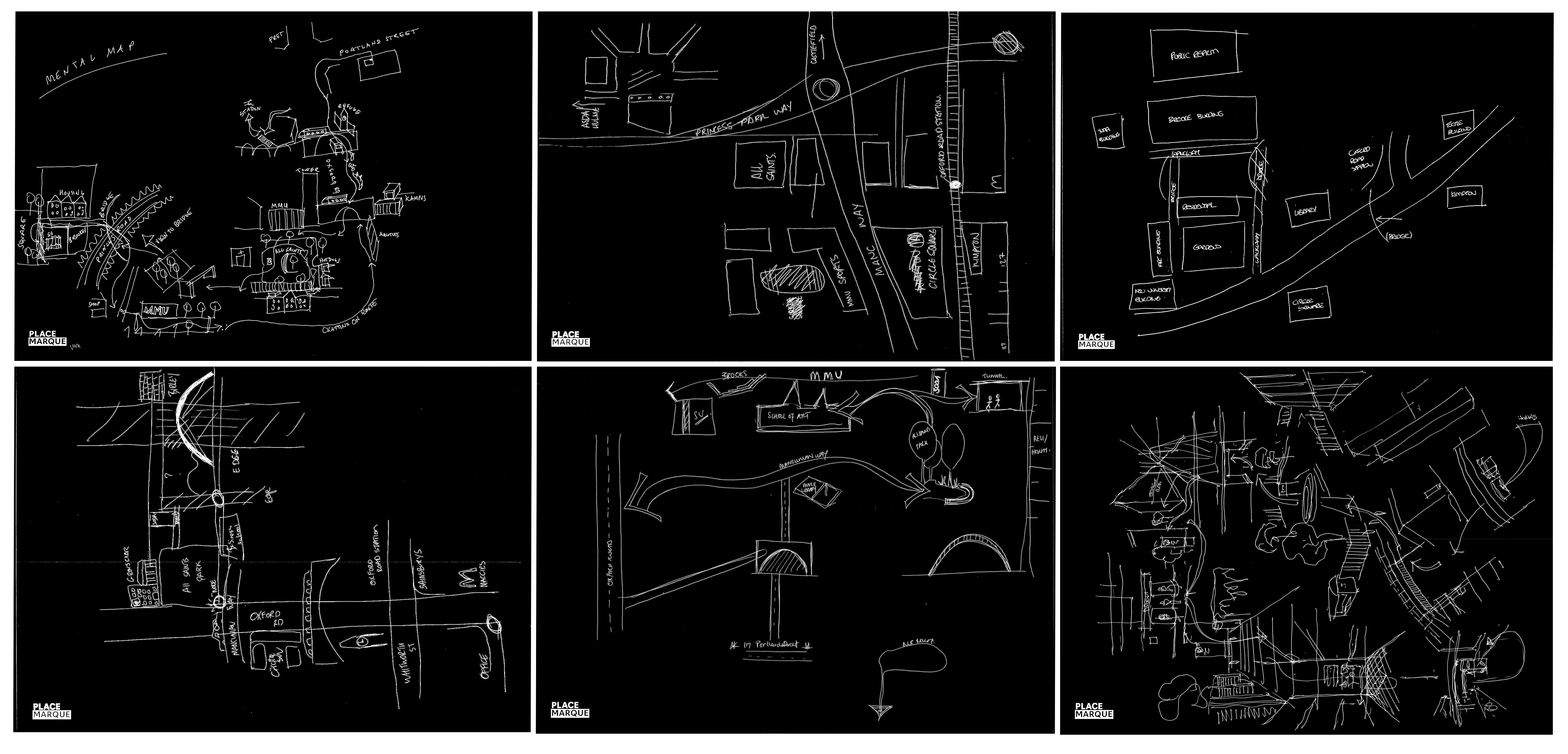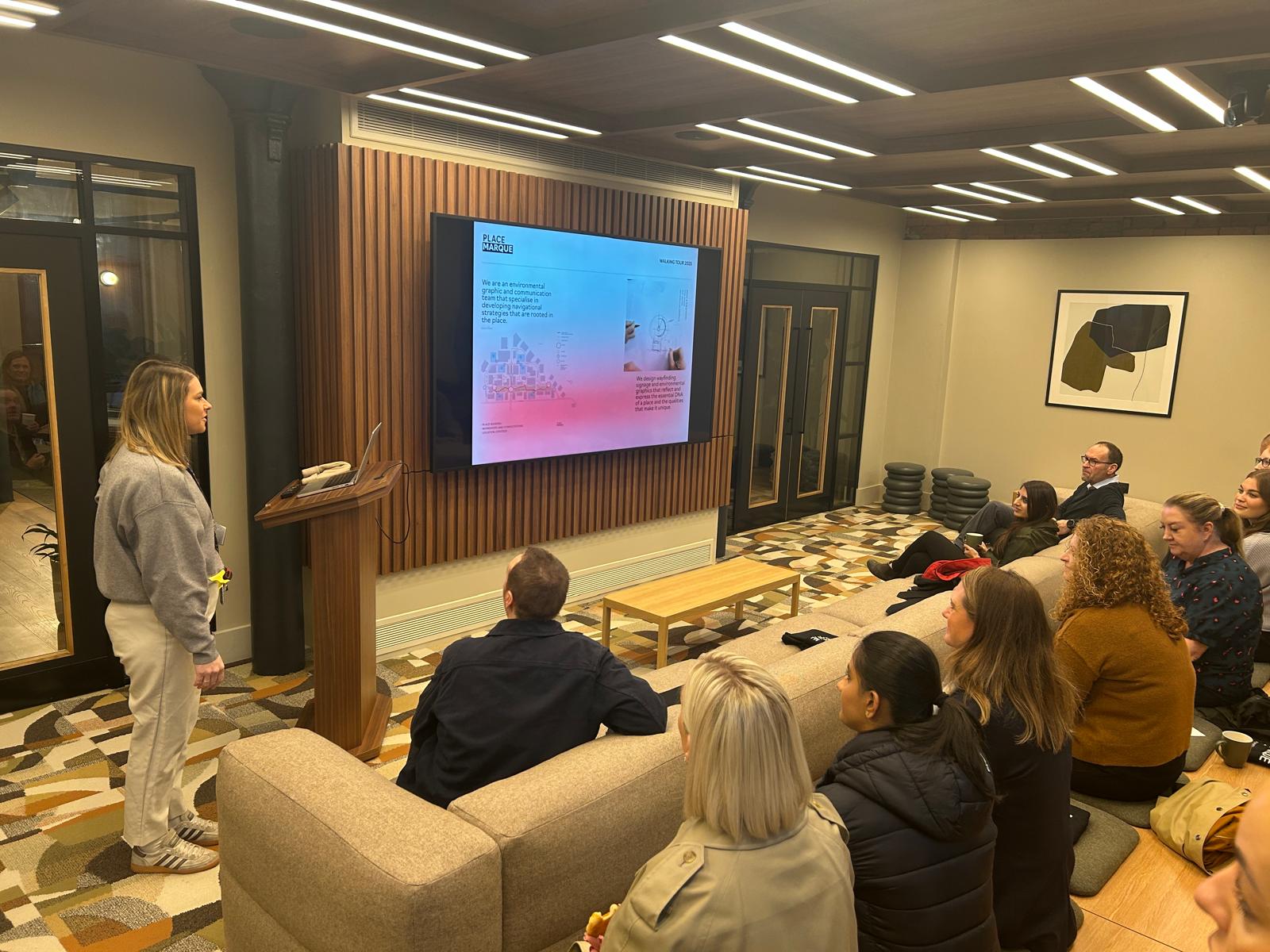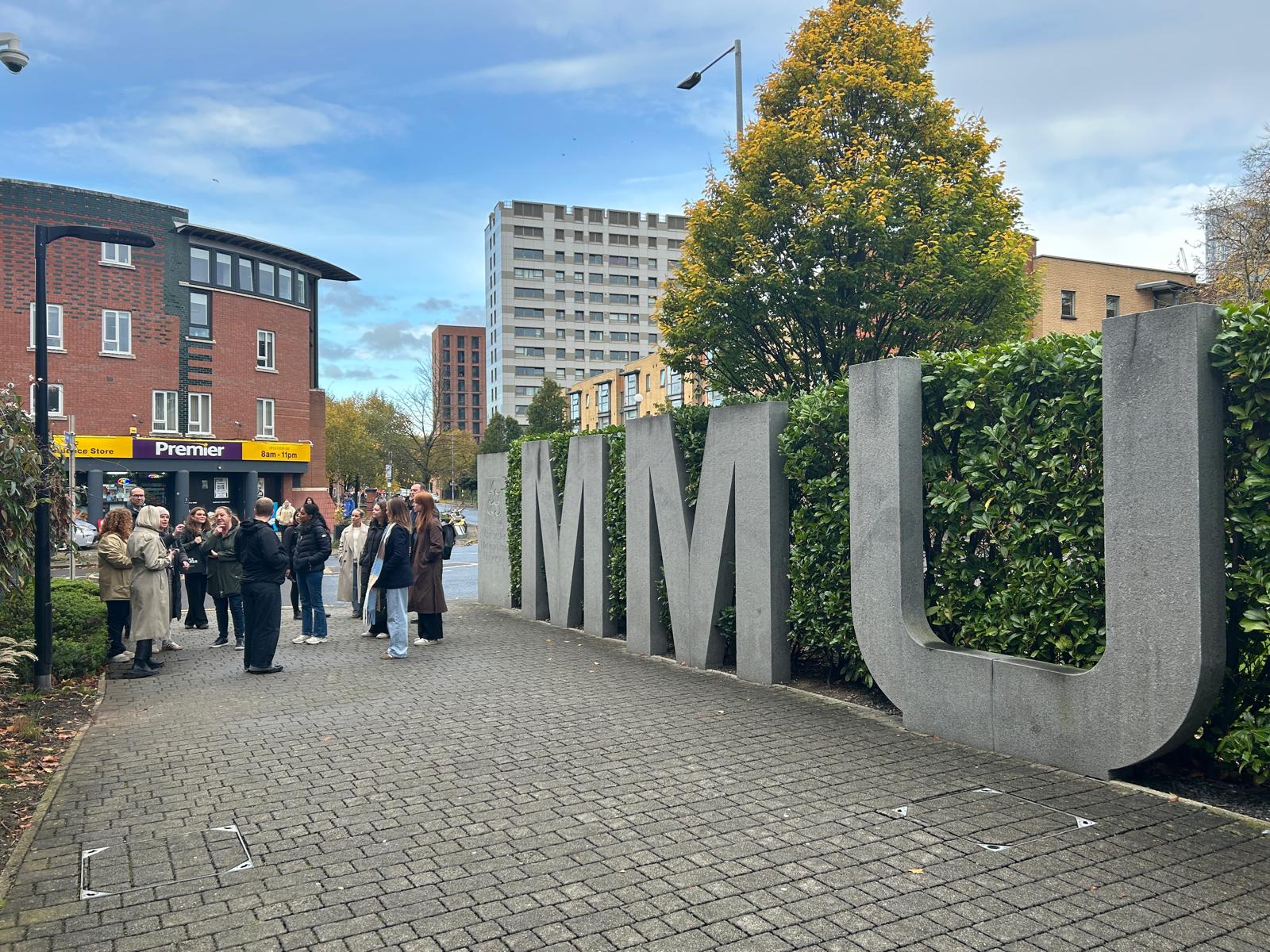
This time last week we joined forces with Women in Property North West to ask the question:
How do you find your way around a campus?
Campus environments are complex, layered places. In fact, we think they might just be the most complex of spaces we work in.
They’re not just spaces for study – they’re destinations for visitors, workplaces for staff and communities in their own right.
We hosted a guided walking tour of Manchester Metropolitan University’s All Saints campus, encouraging our guests to ask themselves what makes the difference between a campus that invites exploration and one that causes confusion.
Of course, it’s far more than signs. We all experience places differently, with our own mental map of a place being influenced by experience and navigational clues. The easier you can draw your own mental map of a place, the better you’ll be able to navigate it and have the confidence to explore and stay a little longer.
So after the walk, we challenged our guests to draw their own mental maps of where they’d just been. And although we’d all walked the same route, everyone’s perceptions were different.
Read on for our top three themes that came out of our discussions:

As we led our guests around the campus, we highlighted Kevin Lynch’s research on the perception of cities and how people experience urban environments. He defined the five elements that we can use to make a mental map of a place as:
These five elements are how people experience a place – as opposed to how a masterplan might think people should – and it’s all about legibility. Understanding movement through a place (the paths) and its boundaries (like rivers or, in our case, busy roads) is crucial to getting under the skin of it. These elements, together with a place’s sense of identity and clocking where nodes (like All Saint’s Park) and landmarks are, helps us build a mental map of a place, which in turns helps us to feel confident to explore further.

Though we’d all walked the same route, and seen the same landmarks, our subsequently drawn maps were pretty varied. While we mostly all noted the same key landmarks, the way we’d each chosen to represent the place differed, highlighting how people think differently and experience a place differently. Scale was also perceived differently, with many of us overestimating distances because of perceived barriers, like road crossings or not clearly signed routes.


While MMU’s campus is spread across two campuses, the wayfinding interventions - which encompass high-level university identifiers, mid-level building names and low-level directional signage - all work together to provide a cohesive journey that guides movement, strengthens route recognition and defines arrival points with clarity.
As novelist Marcel Proust said, “ The real act of discovery is not in finding new lands, but in seeing with new eyes.” By focusing on how people experience a place and understanding the five key elements that influence their movement this creates a robust wayfinding strategy. At MMU the wayfinding strategy was as much about strengthening gateways and orientation points as it was about helping users reach their destination. When it all works together it brings consistency and engenders confidence in the user.
That’s when people start to stay a little longer and explore a little further.
Until next time…
Huge thanks again to Women in Property, and all those who joined us on the latest Mapping Manchester event. We hope to see you at our next walking tour.
So in the spirit of Proust, don’t forget to look up; you might just see your regular commute with new eyes!
“The real voyage of discovery consists not in seeking new lands but seeing with new eyes”.
